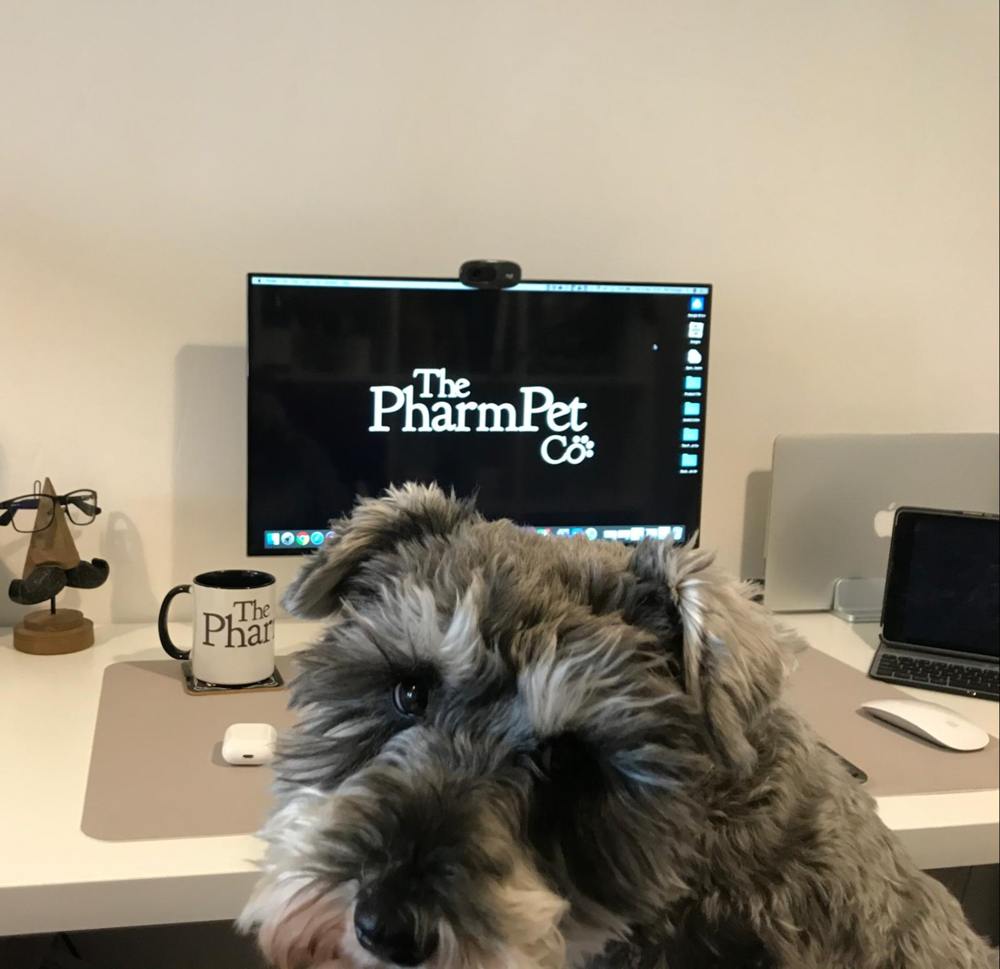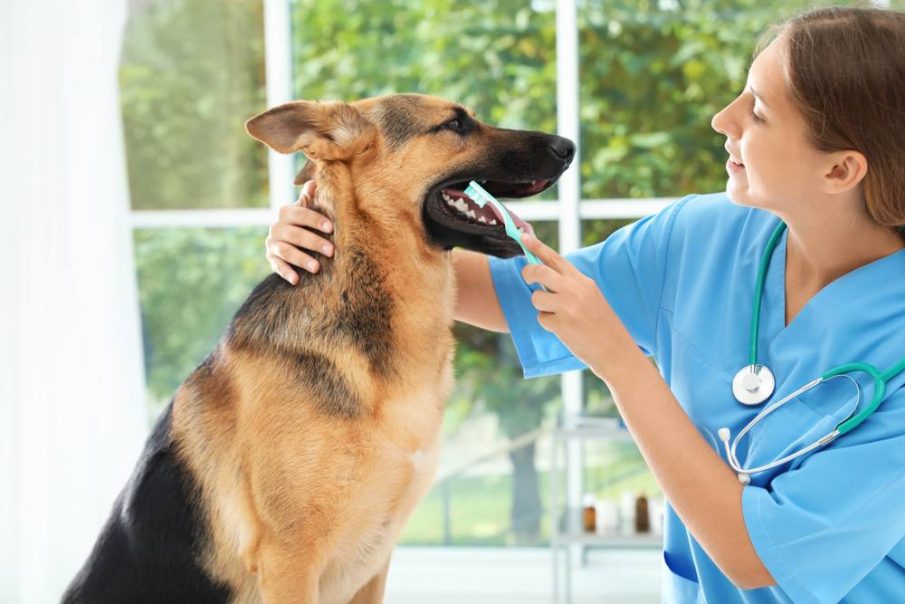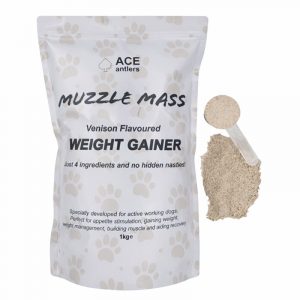The PharmPet Co is an independent, family business established in 2019 by brothers Neil and Phil Younger, and their father, Keith. Neil and Phil have used 60 years of pharmaceutical experience to explain why dog dental care is so important.
We know that dog lovers always want to make sure that their canine friends live a happy life, and a big part of that is ensuring their mouth and gums stay healthy!
What happens in our pets’ mouths is very similar to the process of gum disease in humans. We all agree that brushing our own teeth regularly is crucial, and our dogs are no different.
So, How Can I Look After My Dog’s Teeth?
When your pup eats, their saliva, bacteria and food all form together – creating plaque. If this plaque isn’t removed, it builds up over time and creates a brown and yellow hardened tartar, which can irritate your pets’ gums and cause inflammation, redness and bad breath (gingivitis).
No-one wants to watch their pet suffer with pain, but gum disease can cause chronic discomfort that truly affects the quality of your dog’s life – eventually even making them reluctant to eat.
Once you get into a routine for your dog, it’s easy to keep on top of your pets’ dental care by following some simple steps:

1. Teeth Cleaning
Incorporating daily teeth cleaning into your schedule is a must!
It’s best to introduce teeth cleaning to your pet as early as possible, ideally when they’re a puppy so they can get used to the brushing motion.
When it comes to the teeth brushing technique…it’s important to start early and slowly, and establish a consistent and effective routine. This must be a positive experience for your dog, so make sure to reward them! Your local vet practice can advise on this, with demonstration and material.
Make sure you’re using a palatable toothpaste, try a few flavours and see which one your pup prefers.
The choice of toothbrush is also critical, and various options exist for different sized mouths, so make sure you get the right size for your dog!
If your dog point-blank refuses to get their teeth brushed, don’t force it, as it could lead to irreversible behavioural issues. The first thing to do is to speak to your vet practice and book a dental appointment with a vet or a nurse.
2. Dental Sticks!
Giving your pup dental sticks helps remove plaque and food that’s stuck in the gumline. But, with so many dental chews out there, how do you know which one to pick?
Dental chews made from compressed vegetable matter shaped as treats and rawhide chews are usually a safe bet! But, as always, there cannot be one fit for all.
Consider the size of the chew – if the chew is too small, the contact time will be too short to have an effect, or worse, the dog could swallow it whole and potentially choke. Chews will have a weight recommendation on the packaging. If the chew only lasts seconds, then the dental benefits will be negligible.
The shape is also important: the benefits of chews depend on the physical contact between the chew, the tooth and the gum line (junction between the gum and the tooth surface). Choose a shape that has been medically designed to meet the contours of the tooth rather than a cute funky shape!
Consistency is key, the chew needs to be hard enough to allow sufficient contact time, but not too hard that it might cause potentially severe damage such as tooth fracture or gum damage.
3. Dental toys
Incorporating dental toys into your dog’s routine is a fantastic – and rather sneaky – way of keeping your pet both entertained and their teeth clean at the same time!
By encouraging your pet to chew, dental toys stimulate your dog’s body to produce saliva, rinsing away food debris and bacteria. The chewing action itself also helps to clean your pet’s teeth, removing any acids produced by plaque!
There are so many different dental toys on the market, so again – find which toy works best for your pup!
By taking these simple steps, you can significantly reduce your dog’s chances of developing gum disease, (hopefully) help keep that bad breath away and have good dog dental care!






